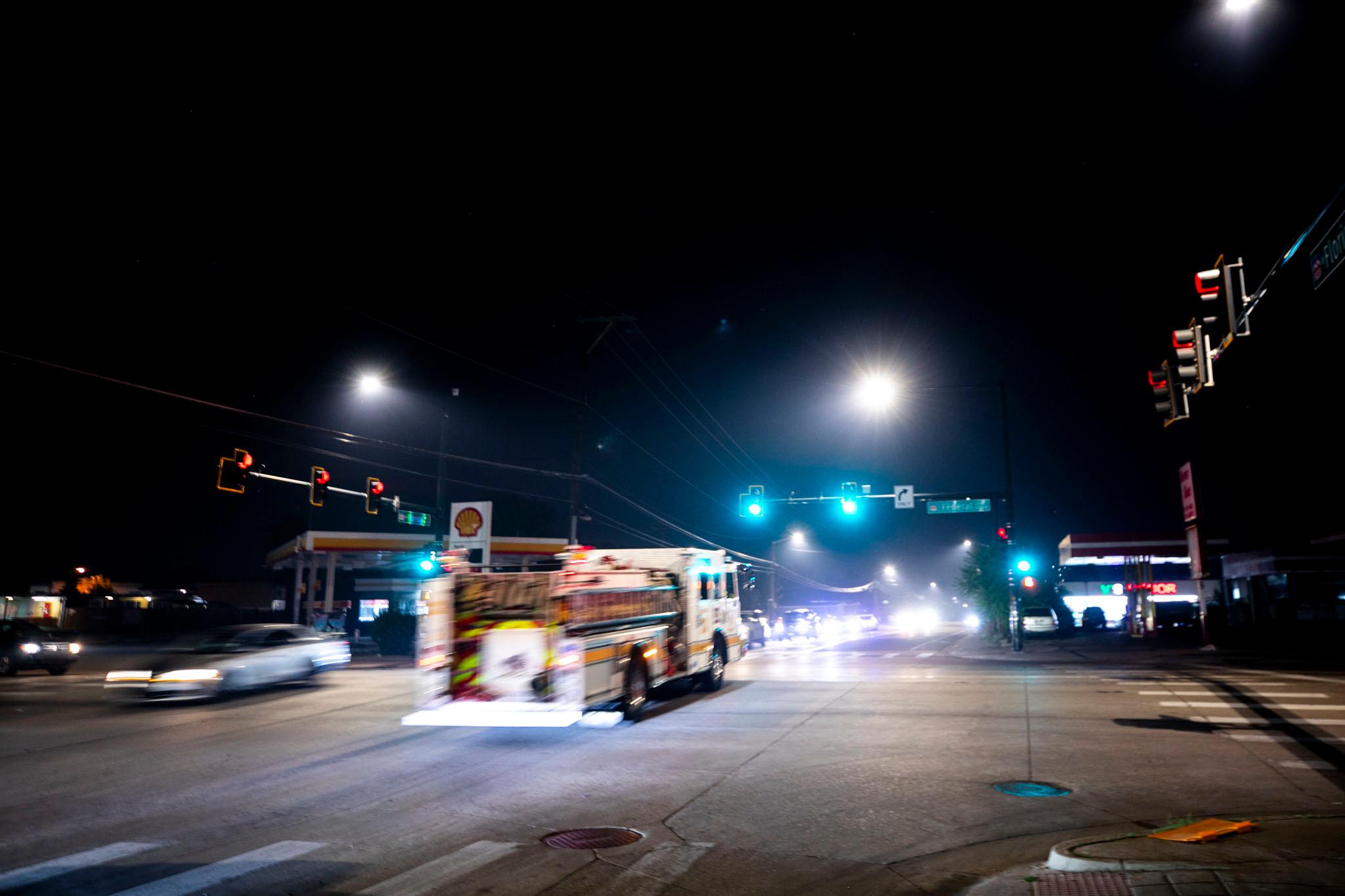Most metro residents were probably not at work on Independence day.
They may have been with family instead, or skipping town, or staring up at the sky, enjoying or absolutely hating the fireworks that blanketed Denver for a few days.
But local firefighters were working. A lot.
They told us they responded to a lot of blazes, but that was anecdote, not data.
We wanted to know how this year's damage compared to recent memory, so both Denver and Aurora's fire departments shared records to help us find out.
The 2024 July 4th holiday was record breakingly bad for fires.
During the week spanning Monday, July 1, to Sunday, July 7, both Denver and Aurora's departments recorded more fires than in any other week in the records they provided.
Denver's data goes back to 2017. Aurora's goes back to 2021.
Aurora's numbers showed the most jarring uptick that week, quadrupling the average 23 fires per week to 108.

While Aurora Fire spokesperson Dawn Small said 2020 was also pretty rough, she could not provide information prior to 2021. The department switched data systems that year, which means older numbers are not comparable to 2024.
Denver's record week reached 232 fires, not quite as dramatic as Aurora's. The city usually sees more around July 4th, and sometimes at the end of the year, but 2024 still represents an eight-year high.
Our second-worst fire week on record was in May 2020, as protests over the murder of George Floyd continued around Civic Center.

July 4th tends to be the worst for holiday fires, but officials say fireworks aren't the entire problem.
While there tend to be more fires on a holiday when the skies are filled with explosions, investigators don't always find evidence they were caused by those explosions.
Of 47 incidents that Aurora's department saw on the Fourth of July this year, Small said they only six were suspected of being caused by fireworks.
"The numbers this year would not exclusively have been due to a potentially higher usage of fireworks. It could have been due to a variety of possible factors including anomalies," she wrote us.
Most of these are small grass or trash fires that get less scrutiny than more serious events, which can take months to be investigated.
Denver Fire spokesperson JD Chism told us his department clears about 66 percent of cases.
While it's likely some fireworks-related burns never get labeled as such, he said you should give credence to common sense: Just look at when these spikes are happening.
Both Chism and Small said they're not aware of any incidents of fireworks setting a blaze that killed someone. Investigations into injury or property damage can lead to criminal charges.

Climate change, of course, is making things more dangerous.
On Thursday, the U.S. Drought Monitor released a new map, which pegged the metro mostly in "moderate drought."
Russ Schumacher, Colorado's state climatologist, said things have gotten drier since their last update.
"The Front Range has been very dry since the beginning of May," he wrote us. "I think we’re pretty fortunate that we haven’t seen any real big fires yet, given how hot and dry it’s been. March and April were quite wet along the Front Range, so we may still be benefiting from that."
Heat waves are increasingly common and extreme in this state.
"Obviously weather and climate don’t cause fires to start, but they can set the stage for fires to grow," Schumacher added. "As always, it’s important for people to take care with fire and fireworks."

Some Colorado counties have recently banned fireworks as a result of these increasingly dangerous conditions.
They've long been illegal in Denver, though Denver Police rarely ticket people for using them.
Aurora has a standing fire ban that, once a year, they consider suspending for a few weeks, to let people to enjoy their Fourth of July fun. Small said they decide based on three metrics related to how much foliage could burn and the U.S. Drought Monitor's maps.
This year, the foliage numbers were in good shape, and the map didn't look so bad back in June. Aurora suspended their ban this year.













